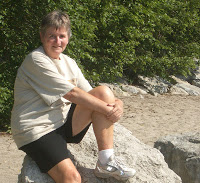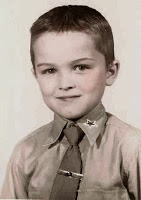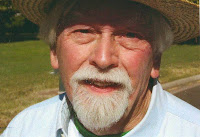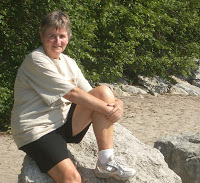Finding my voice has never been difficult for me. Finding it when I should be losing it is what has always been my problem. From my early school days on, if a group of us were somewhere we should not be or doing something we should not do, I was always the one who got caught. My voice just naturally carries, so even if no-one witnessed our misbehavior, someone was sure to identify my voice and name me as one of the otherwise unidentified miscreants.
For a shamefully long time I failed to learn from this the obvious advantage of keeping my mouth shut! I was a fount of firm opinions, and rarely failed to voice them. This led to many arguments, a considerable number of which I lost because I tended to find my voice without the necessary accompaniment of engaging my brain. Later I would often ask myself, why on earth would you say that? What in the world were you thinking? I failed to answer myself, as I should have, by saying, that’s the problem isn’t it? You were not thinking.
I added to my difficulties by consistently finding my voice when I was angry; and if there ever is a time to lose your voice, that is it. But no, my voice would be off, seemingly of it’s own, volition, speaking whatever words it wanted without reference to me, and most certainly not to my brain which remained silent except occasionally to mumble indistinctly and very sotto voce about big mistakes and future regrets. I could not begin to count how many times I was forced into abject apologies the following day. (I can never decide whether this means I completely flunk steps 8, 9, and possibly 10 of Alcoholics Anonymous, or possibly I have already completed them with flying colors. Suspecting the former must be why I doggedly remain absent from AA.)
However, despite my lack of assistance from AA, I did eventually accept that I needed to change my ways, and for this I needed help. I turned for this to Spirituality. I have been especially blessed in my efforts to follow this path in that my Beautiful Betsy accompanies me. Finding your way along an unfamiliar and often difficult trail is always easier with a companion rather than having to go it alone – especially when that companion is also your soul-mate and the love of your life. Together we have read many books, joined Spirituality groups, listened to CDs and watched wonderfully articulate guests on Oprah’s TV series, Supers Soul Sunday.
One of the early books we read, though more self-help in general than Spirituality, contained simple advise I have never forgotten. Remember to ask yourself from time to time, the author says, why am I talking? I find this the ultimate relaxation tool for group situations. Can’t get a word in? Not familiar with, or no interest in, the topic? Relax. Just listen. You have no need to talk.
I have become a much more peaceful person, both for others to be around and within myself, since I started down the path of Spirituality. Anger is almost a thing of my past, and when it does overcome me at least I no longer find my voice, at least until I have thought through what I really need to say and how I need to say it. I don’t mean to make it sound easy. Given our current socio-political situation in this country, I struggle with the extent to which I should in fact control my anger. I know that in theory I should negate the anger and replace it with calm, positive, action. But is there never a time when anger is justified? Ah, I still have a lot of work to do. Spirituality, like so many things, requires eternal vigilance. And that, in turn, requires something so important to you that you never question the need to pay it constant attention. I have found that in Spirituality. I never intend to go back to the days of finding my voice when I should be losing it.
© October 2017
About the Author
I was born and raised in England. After graduation from college there, I moved to the U.S. and, having discovered Colorado, never left. I have lived in the Denver-Boulder area since 1965, working for 30 years at IBM. I married, raised four stepchildren, then got divorced after finally, in my forties, accepting myself as a lesbian. I have been with my wonderful partner Betsy for thirty years. We have been married since 2013.









